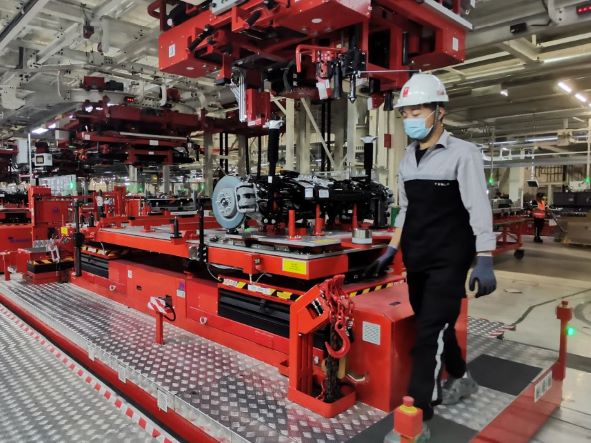
South Korea would offer “tailored” incentives to encourage Tesla to set up an electric vehicle gigafactory in the country and would minimise any risks posed by militant unions, president Yoon Suk-yeol told Reuters.
The report noted Yoon held a video call with Tesla chief executive Elon Musk last week and Yoon’s office cited Musk as saying South Korea was among the top candidate locations for a new Tesla factory.

Discover B2B Marketing That Performs
Combine business intelligence and editorial excellence to reach engaged professionals across 36 leading media platforms.
“If Tesla, Space X or other companies are considering more investment in Korea including constructing a gigafactory, the government will do our best to support the investment,” Yoon told Reuters during a broader interview.
Yoon said South Korea offered highly skilled workers and his government would ensure regulations aligned with international standards so foreign firms did not face unexpected financial or regulatory hurdles.
“We are preparing a tailored approach to grant some advantages to these specified companies,” Yoon said through an interpreter, when asked about what advantage South Korea could offer to Tesla over other locations being mentioned.
Reuters noted Tesla had said it would consider building another gigafactory. Canada, Indonesia, India and Thailand have also been mentioned in media reports as possible locations, but analysts noted that those countries did not have the kind of automotive supply chain that South Korea does, although some are abundant in natural resources like nickel.
According to the report, Yoon credited his government’s tough response to labour union strikes this year for starting the process of establishing a rule of law in industrial relations for both management and labour.
“The militant union culture is a serious problem in South Korean society,” Yoon reportedly said. He added he told Musk the goal of his labour policy was to establish the rule of law to eliminate the risks of unfair labour practices.
According to Reuters, Yoon blamed frequent compromises made by previous governments with powerful labour unions for creating a vicious cycle of illegal strikes leading to more severe strikes and unlawful action by labour unions.






